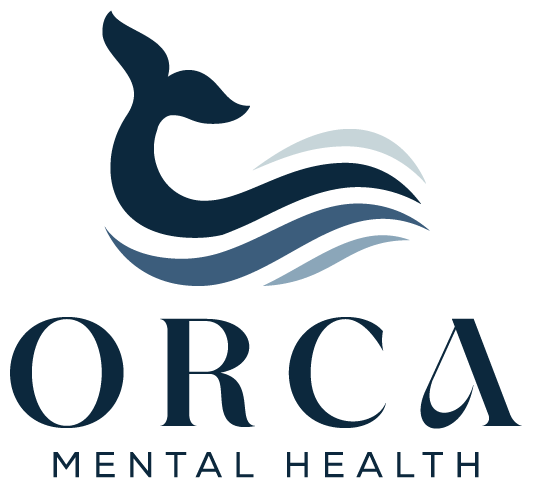PTSD Treatment in San Diego
Choose ORCA for individualized PTSD treatment in San Diego. Call now to learn more.
- Home
- What We Treat
- PTSD
Dedicated to providing comprehensive, individualized care
- Our Program
San Diego PTSD Treatment
Post-Traumatic Stress Disorder (PTSD) is more than just a term you might have heard in passing. It’s a serious mental health condition that can significantly impact a person’s daily life, relationships, and overall well-being. If you’re searching for a PTSD treatment center in San Diego, you’re not alone. ORCA Mental Health is dedicated to providing comprehensive, individualized care tailored specifically for men who are struggling with PTSD, offering hope and a path to recovery in a supportive environment.
- Learn More
What is PTSD? Understanding the Condition
PTSD is a mental health disorder that arises after experiencing or witnessing a traumatic event. These events can include military combat, natural disasters, severe accidents, or personal assaults, among others. While it’s normal to feel scared, anxious, or stressed following such experiences, PTSD is distinguished by symptoms that persist for months or even years, interfering with daily life.
According to research, 4% of men in the United States will have PTSD at some point in their lives. According to the National Center for PTSD, about 6% of the U.S. population will have PTSD at some point in their lives. Military veterans experience PTSD at higher rates, with approximately 11-20% of veterans who served in Operations Iraqi Freedom and Enduring Freedom developing PTSD in a given year.
PTSD It’s not just about being “stuck” in the past—PTSD can cause real and significant distress in the present, affecting your emotional and physical health.
Understanding PTSD is the first step toward recovery. This disorder can alter the brain’s response to stress and danger, making everyday situations feel threatening. The condition doesn’t just affect veterans or those who have survived severe traumas; it can impact anyone who has experienced a life-threatening or deeply distressing event. Recognizing the symptoms and seeking help early can make a significant difference in the recovery process.
- What to Look For
Common Symptoms of Post-Traumatic Stress Disorder
Research from the Journal of Traumatic Stress shows that about 70% of adults in the United States have experienced at least one traumatic event in their lifetime, but only a portion develop PTSD. In those who do develop the condition, symptoms typically emerge within three months of the traumatic incident, though delayed onset can occur in approximately 25% of cases.
PTSD symptoms can vary widely from person to person, but they generally fall into four categories: intrusive memories, avoidance, negative changes in thinking and mood, and changes in physical and emotional reactions.
- Flashbacks: Individuals with PTSD often relive the traumatic event as if it were happening again. These flashbacks can be triggered by sights, sounds, or even smells that remind them of the trauma.
- Nightmares: Disturbing dreams related to the traumatic event are common, leading to sleep disturbances and increased anxiety.
- Severe anxiety: Constantly feeling on edge or easily startled is another hallmark of PTSD. This heightened state of alertness, often referred to as hyperarousal, can make it difficult to relax and enjoy life.
- Avoidance: People with PTSD may go out of their way to avoid places, people, or activities that remind them of the traumatic event. This avoidance can lead to isolation and interfere with daily functioning.
- Importance of Getting Help
How PTSD Affects Daily Life
The impact of PTSD on daily life can be profound. Men with PTSD often struggle with maintaining relationships, holding down jobs, and performing everyday tasks. The disorder can lead to feelings of isolation, anger, irritability, and depression, making it difficult to maintain a balanced and fulfilling life. This can create a vicious cycle where the symptoms of PTSD lead to behaviors that further isolate the individual, exacerbating the condition and impacting wellness. Understanding the effects of PTSD on your daily life is crucial for seeking the appropriate treatment and support.
For example, a man suffering from PTSD might avoid social gatherings because they trigger memories of the traumatic event. Over time, this avoidance can lead to feelings of loneliness and depression. The constant state of alertness and anxiety can also take a toll on physical health, leading to issues like hypertension, heart disease, and chronic pain. These physical symptoms often compound the psychological burden, making recovery even more challenging without the proper care.
Men with PTSD may turn to substance abuse to self-medicate their emotions, which in turn may lead some to develop substance use disorders. This interplay in behavioral health shows the wide-ranging impacts of untreated PTSD.
- ORCA Mental Health
Individualized Approach
- Our Program
Why Choose ORCA Mental Health for PTSD Treatment?
Our therapists work closely with each patient to develop a treatment plan that addresses their specific needs and goals. They provide compassionate, non-judgmental support, helping patients feel understood and empowered to take control of their mental health. The trust and rapport that develop between patient and therapist are critical to the success of PTSD treatment, and our team is dedicated to building those strong, therapeutic relationships.
ORCA Mental Health is uniquely positioned to cater to the specific needs of men. Our men’s only environment allows us to focus on the unique ways PTSD manifests in men, providing a safe and supportive space for healing. We understand that men often experience and express PTSD differently from women, and our trauma therapy programs are designed to address these differences. This gender-specific approach allows us to create a community where men feel comfortable sharing their experiences and challenges, fostering a sense of brotherhood and mutual support that is critical to the healing process.
Men are often socialized to be stoic, to “tough it out,” and to avoid showing vulnerability. This can make it harder for men to seek help for mental health issues like PTSD. At ORCA Mental Health, we understand these challenges and have created a space where men can feel safe and supported in addressing their mental health. Our trauma treatment programs are designed to break down the barriers that prevent men from seeking help, encouraging open communication and emotional healing.
At Oceanside Mental Health, we recognize that no two cases of PTSD are the same. That’s why we offer specialized Post-Traumatic Stress Disorder treatment programs tailored to the individual needs of each patient. Our treatment plans are personalized, taking into account the severity of the disorder, the nature of the trauma, and any co-occurring mental health conditions. Whether your PTSD stems from military service, personal trauma, or another life-altering event, we have the expertise and resources to help you recover.
Our specialized interventions include individual therapy, group therapy, and holistic treatments that address the whole person—mind, body, and spirit. Our clinicians use a variety of trauma-informed therapeutic approaches, ensuring that each patient receives the care that is most effective for their unique situation. This personalized approach not only addresses the symptoms of PTSD but also helps patients develop coping strategies and resilience, enabling them to move forward with their lives.
Our team at ORCA Mental Health consists of experienced therapists, psychiatrists, and support staff who specialize in PTSD treatment. Their expertise ensures that you receive professional help tailored to your needs. Our professionals are trained in the latest evidence-based therapies and stay current with the latest research and advancements in the field of PTSD treatment. This commitment to ongoing education and professional development means that you are receiving care that is grounded in the latest scientific understanding of PTSD and mental health.
- Assessment & Diagnosis
Our Approach to PTSD Treatment
The first step in your PTSD treatment journey at ORCA Mental Health is a thorough assessment. This process involves detailed discussions and evaluations to understand your symptoms, triggers, and the impact on your life. Our professionals will work with you to gain a comprehensive understanding of your condition, which helps in creating a personalized treatment plan tailored to your specific needs.
During the assessment, we also consider any co-occurring mental health conditions, such as depression or anxiety disorders, that may be complicating your PTSD symptoms. This holistic approach ensures that we address all aspects of your mental health, providing a foundation for effective and lasting recovery.
Personalized treatment plan tailored to your specific needs
Evidence-Based Therapies
CBT helps you identify and change negative thought patterns that contribute to PTSD symptoms. It’s one of the most effective treatments for PTSD, helping you regain control over your thoughts and emotions. Through CBT, you will learn practical strategies to manage stress, reduce anxiety, and cope with triggers that may exacerbate your symptoms. Our therapists will guide you through the process of challenging and reframing negative thoughts, replacing them with healthier, more balanced perspectives.
EMDR is a specialized therapy that helps you process and integrate traumatic memories, reducing their impact on your current mental health. This therapy involves guided eye movements that help reprocess traumatic memories, making them less distressing. EMDR is especially effective for individuals who have experienced severe trauma and are struggling to manage their symptoms through traditional talk therapy alone. Our therapists are trained in EMDR and will guide you through each session with care and expertise.
Prolonged Exposure Therapy involves gradually facing trauma-related memories, feelings, and situations to reduce their power over your life. This therapy is based on the idea that by confronting what you fear in a controlled, therapeutic environment, you can reduce your anxiety and avoidance behaviors. Over time, this exposure helps you regain control over your life and reduces the impact of PTSD symptoms. Our therapists will work with you to develop a safe and supportive environment for this challenging but effective treatment.
Holistic Treatment Approaches
Mindfulness practices help you stay grounded and manage the stress and anxiety that accompany PTSD. By focusing on the present moment, mindfulness can reduce the impact of intrusive thoughts and help you develop a greater sense of control over your emotions. Meditation, in particular, has been shown to reduce symptoms of PTSD by promoting relaxation and reducing stress.
Regular exercise is crucial for mental health, especially for individuals with PTSD. Our fitness programs are designed to improve physical and mental well-being, helping to reduce symptoms of PTSD. Exercise has been shown to reduce anxiety, improve mood, and increase overall well-being, making it an important component of PTSD treatment.
A balanced diet can have a profound effect on mental health. Our nutrition counseling ensures that you are eating in a way that supports your recovery. Proper nutrition can help stabilize mood, reduce anxiety, and improve overall well-being, making it an important part of your PTSD treatment plan. Our nutrition counselors will work with you to develop a personalized nutrition plan that supports your mental health.
Connecting with others who have experienced similar traumas can be incredibly healing. We offer support groups where you can share your experiences, learn from others, and develop a sense of community. These groups provide a safe and supportive environment where you can talk about your challenges and receive encouragement from others who understand what you are going through.
Even after your primary treatment is complete, regular therapy sessions can help you stay on track with your recovery goals. These sessions provide an opportunity to discuss any challenges you are facing, refine your coping strategies, and continue to work on your mental health. Individual therapy is a key component of aftercare because it provides ongoing support and guidance as you transition back into everyday life.
PTSD doesn’t just affect the individual; it impacts loved ones too. We involve families in the treatment process to help them understand what their loved one is going through and how they can provide support. Family therapy sessions provide an opportunity to address any issues that may have arisen as a result of PTSD and to develop strategies for supporting your loved one’s recovery. By involving families in the treatment process, we help create a supportive environment that can enhance the recovery process.
- Ongoing Support & Aftercare
The Importance of Aftercare in PTSD Treatment
Treatment doesn’t end when you leave our facility. Ongoing support is crucial to maintaining your progress and preventing relapse. At ORCA Mental Health, we understand that recovery is a lifelong journey, and we are committed to providing the support you need every step of the way.
Our aftercare programs are designed to help you transition from intensive treatment to everyday life, providing the tools and resources you need to maintain your progress. These programs include regular check-ins with your therapist, support groups, and access to additional resources that can help you manage stress and prevent relapse. By staying connected to your treatment team, you can continue to build on the progress you have made and maintain your mental health.
Research from the Department of Veterans Affairs shows that continued therapy support following intensive PTSD treatment reduces relapse rates by up to 50%. Studies also indicate that individuals who participate in support groups are 30% less likely to experience symptom recurrence compared to those who do not.
- Get Help Now
Taking the First Step Towards Recovery
How to Get Started with ORCA Mental Health
If you or a loved one is struggling with PTSD, don’t wait to seek help. Contact ORCA Mental Health today to schedule a consultation and take the first step towards recovery. Our team is here to listen to your story, assess your needs, and create a personalized treatment plan that works for you.
Getting started with PTSD treatment can feel overwhelming, but you don’t have to do it alone. At ORCAe Mental Health, we are committed to providing the support and guidance you need every step of the way. From your initial consultation to your final therapy session, we will be with you every step of the way, helping you navigate the challenges of PTSD and reclaim your life.
Personalized Care
Our team is here to listen to your story, assess your needs, and create a treatment plan that works for you. We believe in the power of personalized care and are committed to helping you reclaim your life from PTSD. By working closely with you to understand your unique needs and challenges, we can develop a treatment plan that is tailored to your specific situation. This personalized approach ensures that you receive the care and support you need to achieve lasting recovery.
Whether you need individual therapy, group therapy, or a combination of both, our team will work with you to develop a treatment plan that addresses your specific needs and goals. We are committed to helping you achieve lasting recovery, and we will be with you every step of the way.
Comprehensive, personalized approach to PTSD treatment
- Our Program
Your Journey to Healing Begins Here
At ORCA Mental Health, we understand the profound impact PTSD can have on your life. But we also believe in the resilience of the human spirit and the possibility of recovery. With our comprehensive, personalized approach to PTSD treatment, you can start your journey toward healing in a supportive, understanding environment. Reach out today to learn more about our services and how we can help you on your path to recovery.
We believe that recovery is possible for everyone, and we are committed to helping you achieve the life you deserve. Whether you are struggling with flashbacks, anxiety, or avoidance behaviors from traumatic experiences, our team is here to help you overcome these challenges and reclaim your life. Don’t let PTSD control your life—take the first step towards recovery today by contacting ORCA Mental Health to learn more about our life-changing mental health treatment programs.
- Get Help With Costs
We Accept Most Major Insurances
Contact our team or fill out our online form to verify your insurance coverage.








- Get Started
Take the First Step Toward Recovery
At ORCA Mental Health, we believe in a holistic and individualized approach to mental health care. We recognize that every journey is unique, and our programs are tailored to the specific needs of each client.
- Our clients receive the most effective and relevant treatment
- We work collaboratively to provide the highest standard of care
- Our Community fosters long-term recovery and personal growth

